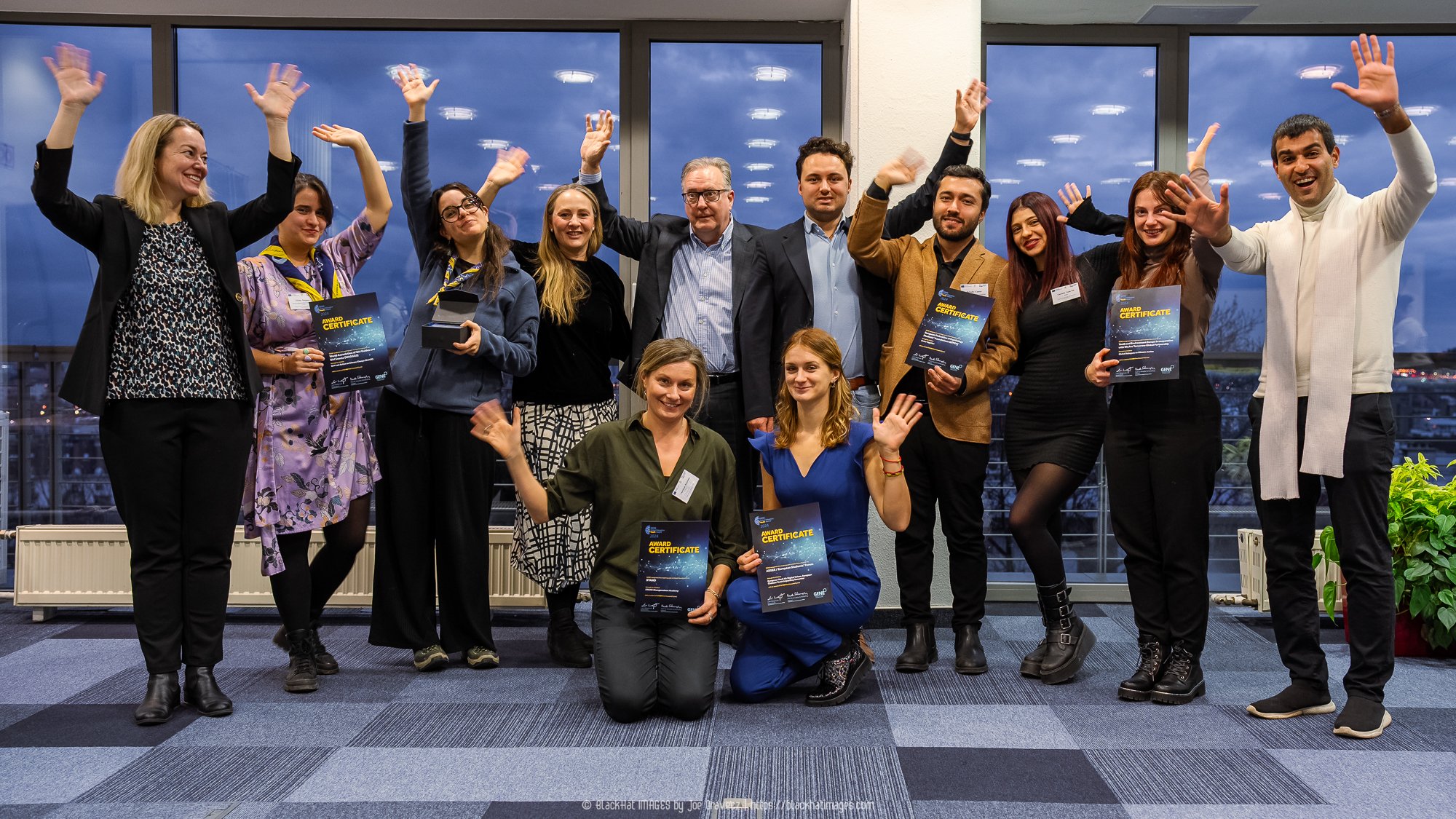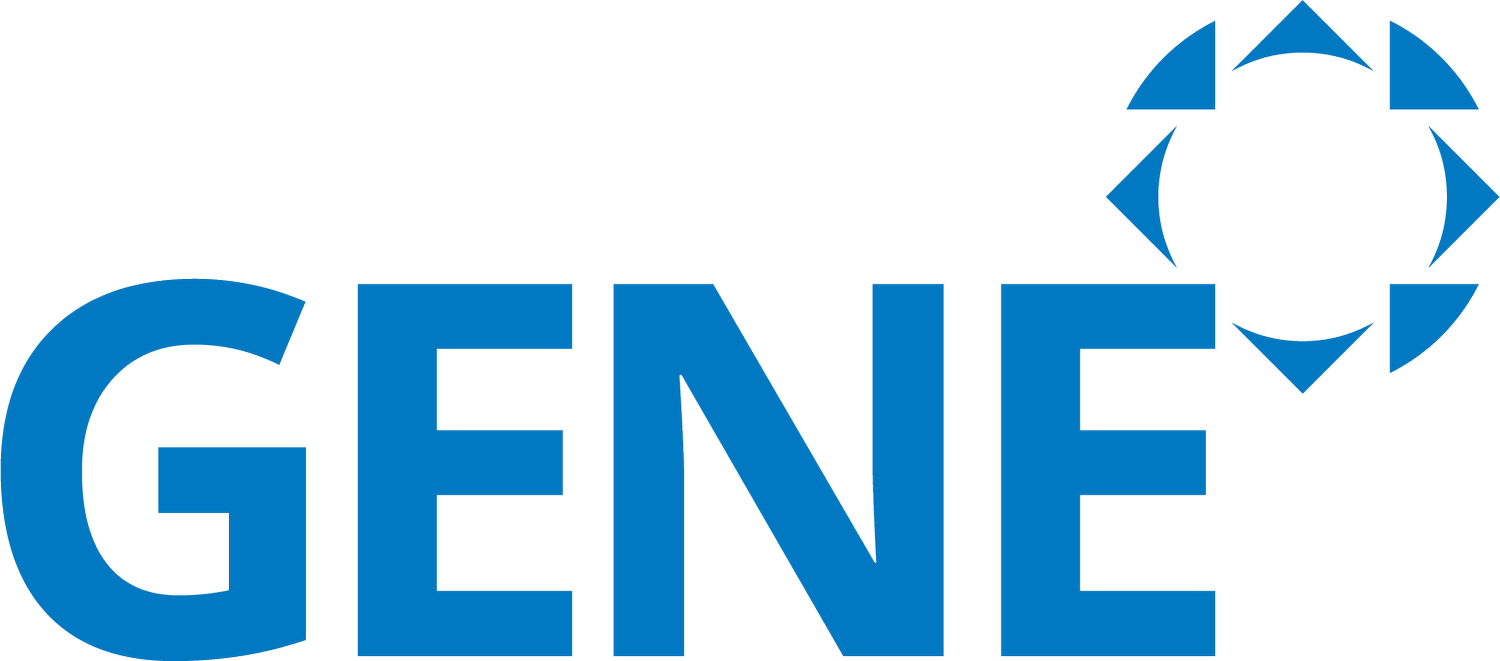
Through the 2024 Global Education Youth Award
GENE highlighted quality Global Education youth initiatives, providing them with recognition to inspire others and share these exemplary youth practices with various stakeholders in Global Education, the policymakers and the broader public across Europe.

GENE Global Education Youth Awardees 2024
14 initiatives have been awarded out of 41 eligible submissions.
5 organisations received €5000 each, and 9 organisations received €3000 each.
Altogether GENE awarded €53.000 to 14 organisations.
-
In this 5th edition of the Global Education Youth Award, the focus was on youth-led initiatives. What makes you do Global Education youth-led activities in a different way? What is the story behind your youth-led initiative?
-
To offer recognition to ongoing or recently finalised youth-led Global Education initiatives in Europe that facilitate transformative learning.
To collect examples of innovative practice and disseminate learning from youth-led Global Education initiatives to policymakers throughout Europe.
-
The award was open for applications from organisations that work towards the vision and aims of Global Education as elaborated in the Dublin Declaration, specifically:
🟠 legally constituted, youth-led organisations at local, national and international level in European countries (national and local youth councils, international youth organisations working at all levels).
🟠 legally constituted youth serving organisations (CSOs, LRGs, etc.) at local, national and international level in European countries, where at least 30% of the organisation’s leadership is made up of youth representatives (18-29 years old).
The initiatives needed to be ongoing or recently finalised (in 2024).
-
Applicants were asked to describe their initiative by submitting a short text (max 1000 words) and a short video (2-3 min). They were encouraged to tell their story. Why this is a youth-led Global Education activity? How does your youth-led initiative contribute to transformative learning? In what ways does this learning happen? What aspects do you consider innovative?
Please note that a successful application process involved a peer assessment of each application by another applicant, as well as, review of another application.
Meet the Awardees
The 5th round of GENE Global Education Award was dedicated to Global Education youth work and was opened to youth-led and youth service organisations that were inspired by the Dublin Declaration on Global Education to 2050.
Submitted initiatives involved a wide range of activities, methodologies and Global Education themes, such as climate change issues, social justice, solidarity, human rights, active citizenship, inclusion, dealing with fake news, digital tools, mental health, health inequalities, prevention of violence and inter-generational dialogue.
Who are the Awardees?
Awardees Receiving €5,000:
Better Together – European Federation of Psychology Students’ Associations (EFPSA)
Europe on Track 10 | Digital Voices, European Choices: Youth Impacting Tomorrow – AEGEE / European Students' Forum
Girl-Led Action on Climate Change (GLACC) – World Association of Girl Guides andGirl Scouts (WAGGGS)
Global Dialogues on Climate Justice – Youth and Environment Europe in cooperation with We Are Tomorrow Global Partnership
STAND Changemakers Academy – STAND
Awardees Receiving €3,000:
ART.ACT.DISRUPT – YEU Cyprus (Youth for Exchange and Understanding Cyprus), in collaboration with ABR (Alternative Brains Rule)
Eco Echo – GEYC (Group of European Youth for Change)
Enviro-Hackathon for Community-Based Intervention – RESET (Research and Education in Social Empowerment and Transformation)
F(U)tu(re)_Proof MasterPeace Global Bootcamp 2024 – Stichting MasterPeace
Global Youth Reporter Project – Plan International Ireland's Youth Advisory Panel
Grassrooting Youth Work – Umbrella
Green Skills for Youth with Different Abilities – Beyond Barriers Association
The Future We Want – A.R.T. Fusion
YEPP on Tour – Youth of the European People's Party (YEPP)
GENE Global Education Award 2020/2021
This publication presents GENE Global Education Award 2020/2021, focused on quality and good practice in Global Education across Europe and gives recognition to the nominated initiatives.
GENE Global Education Awardees 2020/2021:
Quality and good practice in Global Education
across Europe
Video summary of all awarded initiatives 2020/2021.
GENE Global Education Award 2020/2021 Ceremony.
LEARN MORE
Within this 4th Award edition, GENE participating ministries and agencies nominated 47 quality Global Education initiatives, which submitted a wide range of inspiring initiatives and programmes. GENE selected 7 initiatives that will be awarded €10,000 each.
Additionally, other initiatives have been recognised for quality in Global Education and will be gathered in a compendium showcasing quality practices.
-
Academic Programme "Global Citizenship Education III"
University of Klagenfurt (Austria)CHanGE – Campaign for Sexual Health and Gender Equality
The University Centre for Development Cooperation (UCOS), BelgiumImagine
Association for Historical Dialogue and Research (AHDR), CyprusPhenomenal Agenda – Global Learning for Sense of Belonging
Peace Education Institute (Finland)21st Century Skills Labs
Institute of Education Policy (Greece)Code of Good Practice for Development Education
IDEA (Ireland)Introducing Global Education to the education system of journalism and political science students
HumanDoc Foundation (Poland) -
GENE considered the following dimensions when reviewing the initiatives from different parts of Europe:
alignment with the Maastricht definition of Global Education (2002) with a strong focus on justice
interconnectedness between the global and the local
highlighting quality that enables learning in other European countries
educational approach
and an active, participatory and critical role of all involved in the initiative
Moreover, the diverse context of the European countries has also been taken into consideration.
Nominated initiatives should be run by a legally constituted body and should reflect what represents quality Global Education, with a view to inspiring stakeholders in other countries, and, in particular, other policymakers.
-
To highlight examples of good practices of quality Global Education initiatives in Europe, to enable multiplication or scale-up, and to enhance policy learning across borders.
-
To offer recognition and to disseminate learning from examples of quality Global Education among policymakers and other stakeholders in Europe.
-
Ministries and Agencies participating in GENE can nominate up to three Global Education initiatives from their country. The type of initiative is flexible. It could be an innovative GE teacher education programme, an unusual partnership, a brilliant NGO project, an inspiring whole-school approach, a youth work initiative or an adult learning project.
-
GENE awarded €10,000 to the most inspiring Global Education initiatives. The money is intended to support, improve and/or expand the work. Additionally, other inspiring initiatives were included in a GENE Award compendium and received a certificate of excellence and recognition.
Past GENE Awards
In 2018, seven innovative initiatives were awarded €10,000 each for creating positive change through creativity, participation, direct action, synergies and innovation, with a view to ultimately inspiring public policy.
GENE Global Education
Innovation Award 2017/2018.
In 2019, GENE awarded three promising ideas for Global Education initiatives that facilitate transformative learning and open peoples’ eyes and minds to the realities of the world, locally and globally.
GENE Global Education
Ideas Award 2019.
This website was created and maintained with the financial support of the European Union and the Ministries and Agencies that support GENE. Its contents are the sole responsibility of GENE and do not necessarily reflect the views of the European Union.







